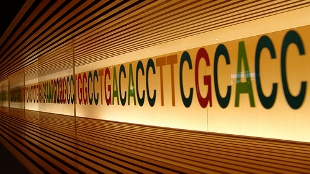
Genomics is the “hottest” field in scientific research for the third year in a row, according to an analysis of citation data. The results, published yesterday (June 6) at Thomson Reuters ScienceWatch, show that 8 of the 21 most influential researchers—as measured by the number of citations during 2012 for papers published in the previous 2 years—study genes and their function.
Top of the heap was Richard Wilson of the Washington University in St. Louis (WUSTL) School of Medicine, an author on 15 highly cited studies, including a blockbuster Nature paper that revealed findings from the 1000 Genomes Project, the most complete catalog yet of variation in the human genome. Wilson was joined on the list by three colleagues at WUSTL—Elaine Mardis, Li Ding, and Robert Fulton, all of whom were coauthors on that landmark study.
Other genomics researchers to make the top 21 were Andy Futreal of the University of Texas MD Cancer Center, who identified BRCA1 and BRCA2 as breast/ovarian cancer susceptibility genes, and Eric Lander of the Broad Institute of Harvard and the Massachusetts Institute of Technology.
As for last year’s hottest journals, the New England Journal of Medicine came out on top, publishing 13 of the 51 most-cited papers, while Nature, with 9, came in second.
The analysis also highlighted the rising influence of Chinese research, with 4 of the top 21 most-cited researchers hailing from institutions in China. “When you look at the quantity of papers published by various nations, China has sky-rocketed in the last few years,” Christopher King, editor of ScienceWatch, told Reuters. “That hasn’t necessarily been commensurate with impact in the literature, as measured by citations, but this seems to be starting to change.”
Correction (June 7): This original version of this article incorrectly stated that Richard Wilson is at the University of Washington School of Medicine. Wilson is actually at the Washington University in St. Louis (WUSTL) School of Medicine. The Scientist regrets the error.











RSS